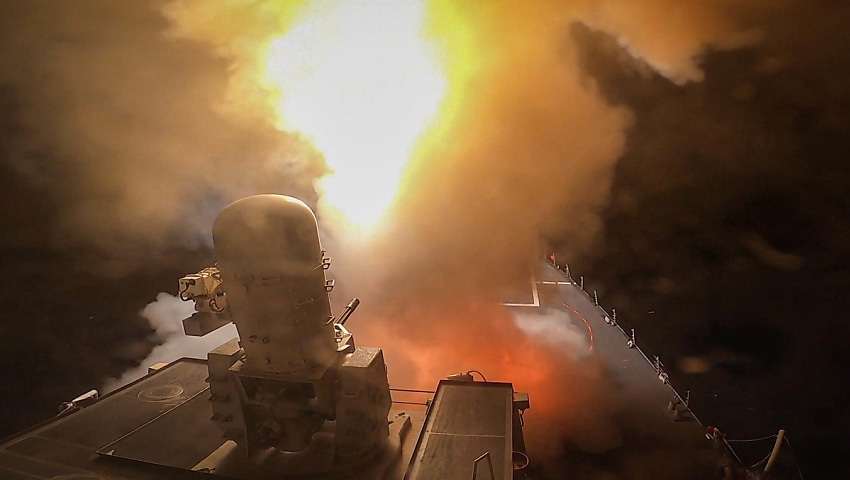Global uncertainty and mounting geopolitical tension have seen a new wave of investors flock to defence and aerospace exchange-traded funds (ETFs) to shore up returns.
To continue reading the rest of this article, please log in.
Create free account to get unlimited news articles and more!
Global investors are increasingly turning to defence technology ETFs, spurred on by rising geopolitical tensions, technological innovation in warfare, and substantial government defence spending.
Geopolitical uncertainties, particularly in the Indo-Pacific, are prompting governments to ramp up military budgets, creating new opportunities for defence technology companies.
China’s growing assertiveness in the South China Sea and escalating tensions surrounding Taiwan have heightened the focus on regional security.
Australia’s geographic proximity to these hotspots, as well as its role as a key US ally, has seen a boost in its own defence initiatives, such as the AUKUS agreement aimed at strengthening military cooperation with the US and the UK.
Moreover, the Australian government has committed to an increase in Australia’s Defence spending, with it tipped to reach $100 billion by 2033–34 as identified in the 2024 National Defence Strategy and Integrated Investment Program (IIP).
Overall, the Australian government’s 2023 Defence Strategic Review highlighted a significant shift in national security policy, with a focus on advanced military capabilities such as missile defence systems, autonomous vehicles, and cyber security.
This is in line with broader global trends where nations are modernising their militaries to face 21st century threats.
For context, defence spending globally has seen a 7 per cent increase, worth US$2.43 trillion in 2023, with forecasts of global defence spending tipped to reach US$3.1 trillion by 2030.
Essentially, we’re seeing the final death throes of the post-Second World War order where Australia, like many nations across the West, enjoyed the benevolence of the United States. It is only natural that now these nations begin to take their defence more seriously.
As governments commit to long-term defence modernisation projects, the sector has become increasingly attractive to investors seeking stable returns.
The financial industry is capitalising on rising defence spending by launching a new wave of ETFs focused on companies involved in national security, military technology, and defence infrastructure.
While defence ETFs are not new, their introduction to the Australian market represents a significant development. Recently, the ASX has welcomed three defence ETFs, featuring stocks from major contractors like Raytheon, Lockheed Martin, and Northrop Grumman – all of which have experienced substantial price growth over the past year.
These ETFs offer investors exposure to cutting-edge military technologies and provide an accessible means to invest in a sector poised for growth, without the complexity of picking individual stocks.
In a time of global economic uncertainty and market volatility, defence technology ETFs are being seen as a defensive play for investors.
Historically, defence spending remains relatively insulated from economic cycles, driven by the persistent need for national security. In Australia, despite inflationary pressures and economic challenges, defence continues to be a top government priority, ensuring a steady pipeline of contracts for defence contractors.
As the geopolitical landscape continues to evolve, continued investment in defence capabilities is expected. Consequently, it makes sense for investors to show increased interest in defence innovation and technology, fundamentally centred on safeguarding our nation and way of life.
ETFs, with their diversified exposure to multiple companies, offer a means for investors to mitigate risk while tapping into the growth potential of the defence tech sector.
As the world evolves, embracing innovative defence solutions will be essential – not just for governments, but for investors seeking to secure their financial future in uncertain times.

 Login
Login







